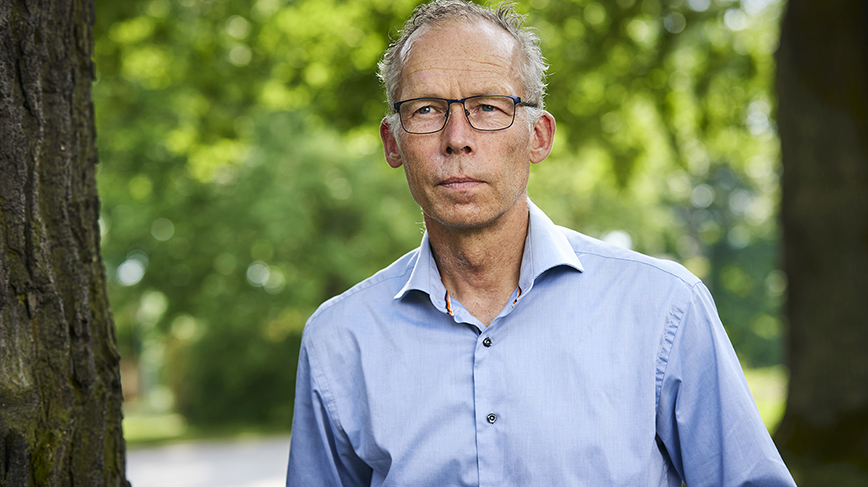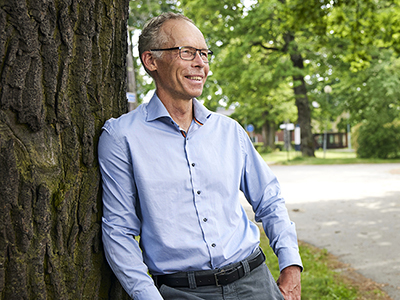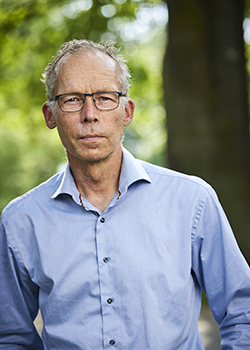'Consuming more won’t make us any happier'
Climate researcher Johan Rockström wins the KTH Great Prize for 2021

As a diligent debater on environment issues, climate researcher Johan Rockström has long warned that climate changes on Earth are leading towards a global crisis.
Today, he is a director of one of the most prominent climate research institutes in Germany. He has been awarded the KTH Great Prize for 2021.
The KTH Great Prize (or Stora Priset) is awarded annually to a Swedish citizen for their contributions to the country through science, the arts or other innovative work. The monetary prize of 1.2 million Swedish kronor (about €120,000) is drawn from a donation made in 1944.
In its citation, the university credits Rockstrom for “instilling hope and urging action” on climate.
When we interview Rockström, Sweden is in the middle of a heatwave. “It’s even hotter in Berlin,” he says, where the temperature has hovered around the 35-degree mark for several days.

Migration to the Arctic
“If climate change on Earth continues the way it has been doing, in 50 years time, 3 to 5 billion people will be living in regions with high average temperatures that will be a threat to human health. We will then risk large scale migration of a high proportion of people in Latin America, North and West Africa, the Middle East, India and South-east Asia.
Rockström says that fauna and flora are already moving northwards toward alpine regions as our planet heats up.
“We risk seeing human migration in the future, climate refugees and the well-heeled, searching for better living conditions all the way up to the Arctic.”
For many years, society has relied on nature in the form of forests and soil to mitigate the effects of greenhouse gas emissions.
“But more and more research is showing that we have probably been far too optimistic,” he says. “One major study recently showed that the Brazilian part of the Amazon rainforest, the largest part of the richest ecosystem in the world, has gone from absorbing carbon dioxide in the air to releasing this during the last 10 years.”
“We are seeing widespread devastation to forests due to attacks by pine beetles and spruce bark beetles as a consequence of climate change, and Swedish forests are also showing signs of being adversely affected by the climate.”
Hopes pinned on oceans
Rockström says that numerous climate models describe ocean environments as our final buffer system.
“However … when we paint a picture of being able to trust that oceans can clean up the damage we have caused to nature, at the same time, we forget that when you clean you create a huge pile of muck. And this muck will remain in the ocean.”
Already today, one-third of the oceans have been acidified, Rockström says, and as a consequence, corals and shell-building marine species are threatened.
“The acidity causes calcium carbonate to dissolve. In other words, we are creating a chemical crisis in oceans when they are over utilised. There is no such thing as a free lunch.”
“Research and technology will play an important role, but only in combination with changes to infrastructure in society. Plus, we need to ensure that the Earth’s finite resources are shared in a fair way between people and countries.”

Rockström says that we are in an acute situation where we need to halve global emissions by 2030, and yet the fact is that we are continuing to increase our emissions.
“This is why we simply cannot wait for eureka technology. We have to act now, for example, by rapidly phasing out all our use of fossil fuel energy.”
Is there any quick fix that you would like to be implemented immediately in society?
“Correctly pricing products and consumables that are harmful to the environment. These days, we are consuming products that are far too cheap, that are subsidised by the planet providing natural capital free of charge. And not charging for damage to nature and climate. Then you can add cheap social capital in the form of underpaid labour.”
Rockström takes a positive view that a number of large companies have implemented business models that include recycling, such as by buying back products and second hand sales. He believes producer responsibility will increase as a consequence of consumers imposing ever stricter environment demands in the future.
“Perhaps the most difficult step for humanity will be to change our values. Research study after research study has now shown that consuming more does not make us humans any happier. We have been manipulated onto a treadmill where social success is based in increased consumption. Welfare and quality of life are not based on economic surplus.”
Katarina Ahlfort
Photo: Fredrik Persson
For more information on the KTH Great Prize for 2021, please contact KTH President Sigbritt Karlsson: rektor@kth.se
Contact Johan Rockström: presse@pik-potsdam.de
